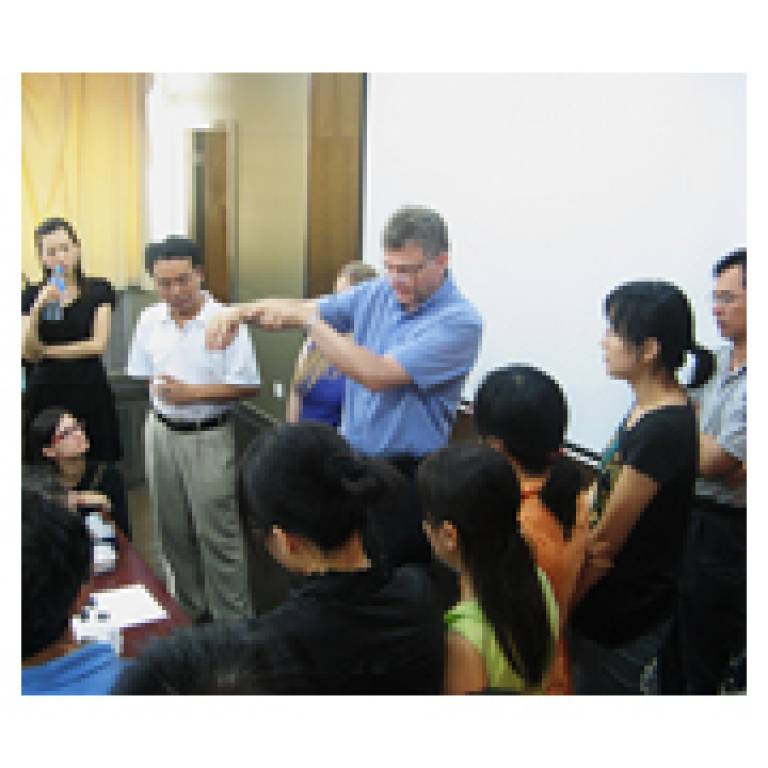UCL students tackle ancient mining and metallurgy in Beijing
19 August 2009
Links:
 ucl.ac.uk/archaeology/" target="_self">UCL Institute of Archaeology
ucl.ac.uk/archaeology/" target="_self">UCL Institute of Archaeology
More than 30 students and postdoctoral researchers have come together in China to study the archaeology of ancient mining, cast iron technology, copper smelting, bronze casting, and technical ceramics through a summer school co-organised by the UCL Institute of Archaeology.
The activities formed part of the Institute for Archaeo-Metallurgical Studies summer school at the University of Science and Technology in Beijing (USTB). UCL's Institute of Archaeology joined forces with Chinese colleagues this summer to organise the two-week event, which was funded by the Beijing Office of Research Councils UK. Students also visited major museum collections and laboratories in Beijing helping to put the lectures in context, and to establish contacts with active researchers in the field.
Professor Thilo Rehren, who led the summer school, said: "The summer school enabled young researchers from China and the West to study the different technological traditions in detail for the first time, but also the problems and solutions common for these two main mega-cultures. UCL's role as a global university made it the ideal host for such an event, offering insights on a global scale and continuing professional development for researchers from as far afield as Europe, Australia, North America and China. The local organisers at USTB, particularly CHEN Kunlong and Professor MEI Jianjun, put tremendous effort into this event, making it a huge success."
Staff at the UCL Institute of Archaeology and the Institute for Historical Metallurgy and Materials (IHMM) at the USTB have a long history of research collaboration and joint doctoral supervision. Most recently, LIN Yixian from the IHMM at USTB was awarded a Newton Fellowship to work with Professor Rehren at the UCL Institute of Archaeology. Her first project, due to start in December, will focus on glass and pigment beads from a chariot burial ground in southern Gansu Province.
The Institute of Archaeology is also closely collaborating with Peking University's School of Archaeology and Museology in the International Centre for Chinese Heritage and Archaeology (ICCHA), to organise a prestigious scholarship programme for mainland Chinese students at UCL, funded by the Sun Hung Kai Properties Foundation in Hong Kong. ICCHA also organises biannual Chinese-Western conferences on modern archaeological topics, thanks to generous support from the Simon Li foundation.
Image: Professor Thilo Rehren (centre) with summer school participants
UCL context
The field of study known as archaeo-metallurgy was spearheaded in the UK by the Institute for Archaeo-Metallurgical Studies, which was established in 1973 and is closely related to the UCL Institute of Archaeology. At the same time, a very similar research group was established at Beijing's then University of Iron and Steel, which evolved into the Institute for Historical Metallurgy and Materials at USTB.
The UCL Institute of Archaeology opened in 1937 and is now one of the largest archaeological departments in the world. It was ranked first in The Guardian's May 2008 League table of the top 30 institutions teaching archaeology in the UK.
Related news
UCL archaeologists uncover London's lost warships
Conference explore legal implications and ethical standards in using cultural property
 Close
Close

